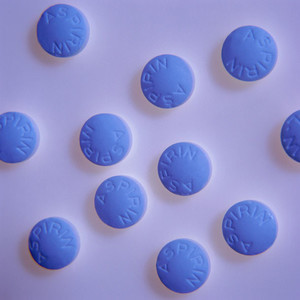Authors of a study carried out in Canada found that there is still uncertainty regarding generics substitution of angiotensin II receptor blockers (ARBs) [1].
Safety of brand-name and generic angiotensin II receptor blockers
Generics/Research
|
Posted 18/01/2019
 0
Post your comment
0
Post your comment

ARBs help relax blood vessels, lowering blood pressure and making it easier for the heart to pump blood. They are used in the treatment of high blood pressure and heart failure.
Substitution from brand-name to bioequivalent generic drugs is one way to reduce healthcare costs. In fact, Therapeutic substitution could save the American healthcare system US$73 billion and patients US$24.6 billion in out-of-pocket expenses [2]. However, previous studies have raised uncertainty when it comes to generics substitution for ARBs in certain populations, such as the elderly [3].
Researchers therefore carried out a retrospective study using cohorts of losartan, valsartan or candesartan users aged ≥ 66 years using data from the Quebec Integrated Chronic Disease Surveillance System.
In the three cohorts (losartan, n = 15,783; valsartan, n = 16,907; candesartan, n = 26,178), 90−92% had hypertension and 13−15% had heart failure. Non-informative censoring and proportionality of hazards were violated for losartan only and no more analysis was considered for this drug. For patients switched to generic valsartan, relative time-to-event (Hazards Ratio [95% confidence interval]) were: 1.07 [0.99 to 1.14] for emergency room consultations (p = 0.07), 1.26 [1.14 to 1.39] for hospitalizations (p <0.0001) and 1.01 [0.61 to 1.67] for mortality (p = 0.98). For candesartan, it was: 1.00 ([0.95 to 1.05], p = 0.91), 0.96 ([0.89 to 1.03], p = 0.25) and 0.57 ([0.37 to 0.88], p = 0.01), respectively.
These data were presented at the American Heart Association’s (AHA) Scientific Sessions 2018, which was held on 10−12 November 2018 in Chicago IL, USA.
The authors concluded that they ‘found some differences in time to adverse event between patients who switched to generics compared to those who remained on the brand-name’. This uncertainty regarding generic substitution, according to the authors, ‘merits in-depth clinical investigation to delineate causality’.
Conflict of interest
The authors of the abstract [1] declared that there was no conflict of interest.
Editor’s comment
It should be noted that data of the study presented in this article was published as an abstract and presented at a conference. These data and conclusions should be considered as preliminary until published in a peer-reviewed journal.
Related article
Impact of delisting ARBs in Denmark
References
1. Leclerc J, Blais C, Rochette L, et al. Safety of Brand-Name to Generic Angiotensin II Receptor Blockers Substitution: Uncertainty Persists. American Heart Association (AHA) Scientific Sessions 2018; 10-12 November 2018; Chicago IL, USA. Abstract 10777.
2. GaBI Online - Generics and Biosimilars Initiative. Therapeutic substitution could save Americans US$73 billion [www.gabionline.net]. Mol, Belgium: Pro Pharma Communications International; [cited 2019 Jan 18]. Available from: www.gabionline.net/Generics/Research/Therapeutic-substitution-could-save-Americans-US-73-billion
3. GaBI Online - Generics and Biosimilars Initiative. Adverse outcomes for elderly using generic versus brand-name ARBs [www.gabionline.net]. Mol, Belgium: Pro Pharma Communications International; [cited 2019 Jan 19]. Available from: www.gabionline.net/Generics/Research/Adverse-outcomes-for-elderly-using-generic-versus-brand-name-ARBs
Permission granted to reproduce for personal and non-commercial use only. All other reproduction, copy or reprinting of all or part of any ‘Content’ found on this website is strictly prohibited without the prior consent of the publisher. Contact the publisher to obtain permission before redistributing.
Copyright – Unless otherwise stated all contents of this website are © 2019 Pro Pharma Communications International. All Rights Reserved.
Most viewed articles
The best selling biotechnology drugs of 2008: the next biosimilars targets
Global biosimilars guideline development – EGA’s perspective
Related content
Japan’s drug shortage crisis: challenges and policy solutions
Saudi FDA drug approvals and GMP inspections: trend analysis
Generic medications in the Lebanese community: understanding and public perception
Community pharmacists’ understanding of generic and biosimilar drugs: Lebanon case study
Generic medications in the Lebanese community: understanding and public perception

Generics/Research Posted 23/01/2024
Community pharmacists’ understanding of generic and biosimilar drugs: Lebanon case study

Generics/Research Posted 08/09/2023
The best selling biotechnology drugs of 2008: the next biosimilars targets








Post your comment